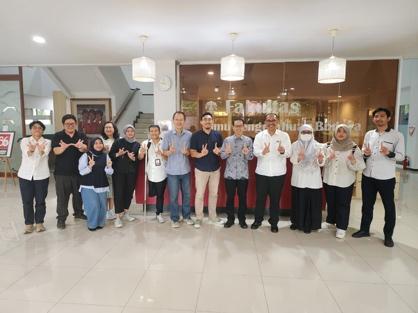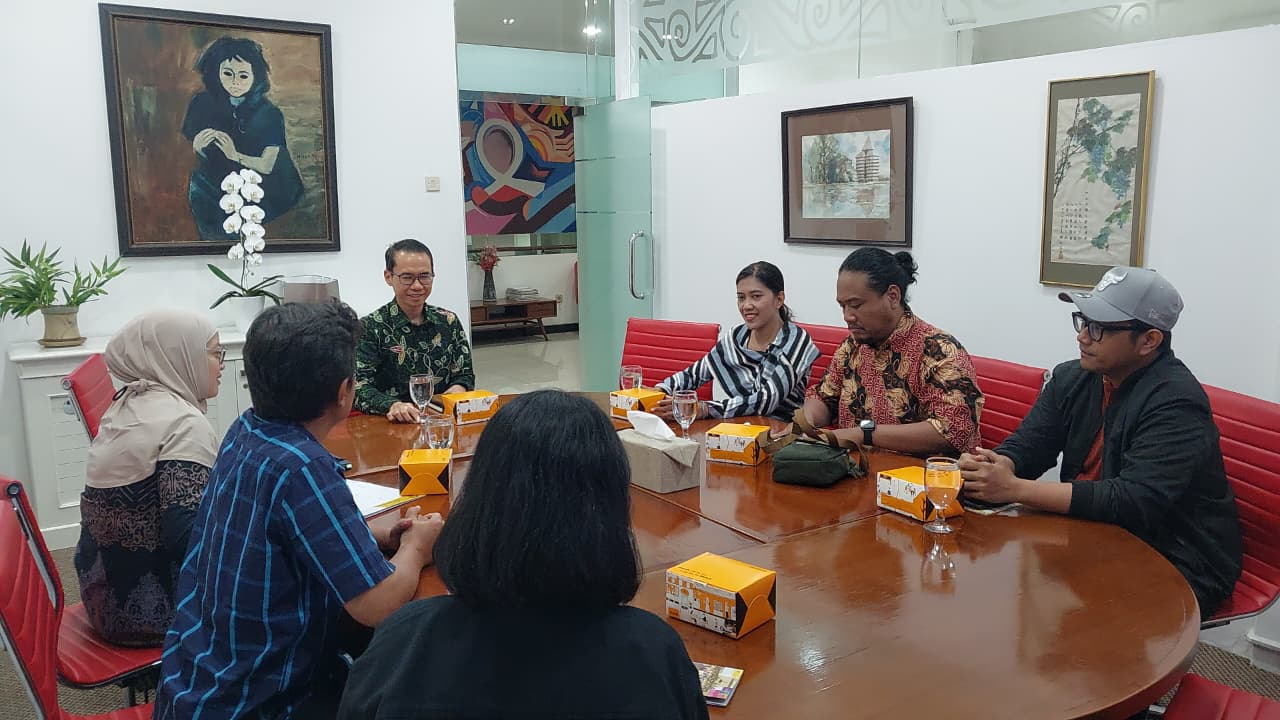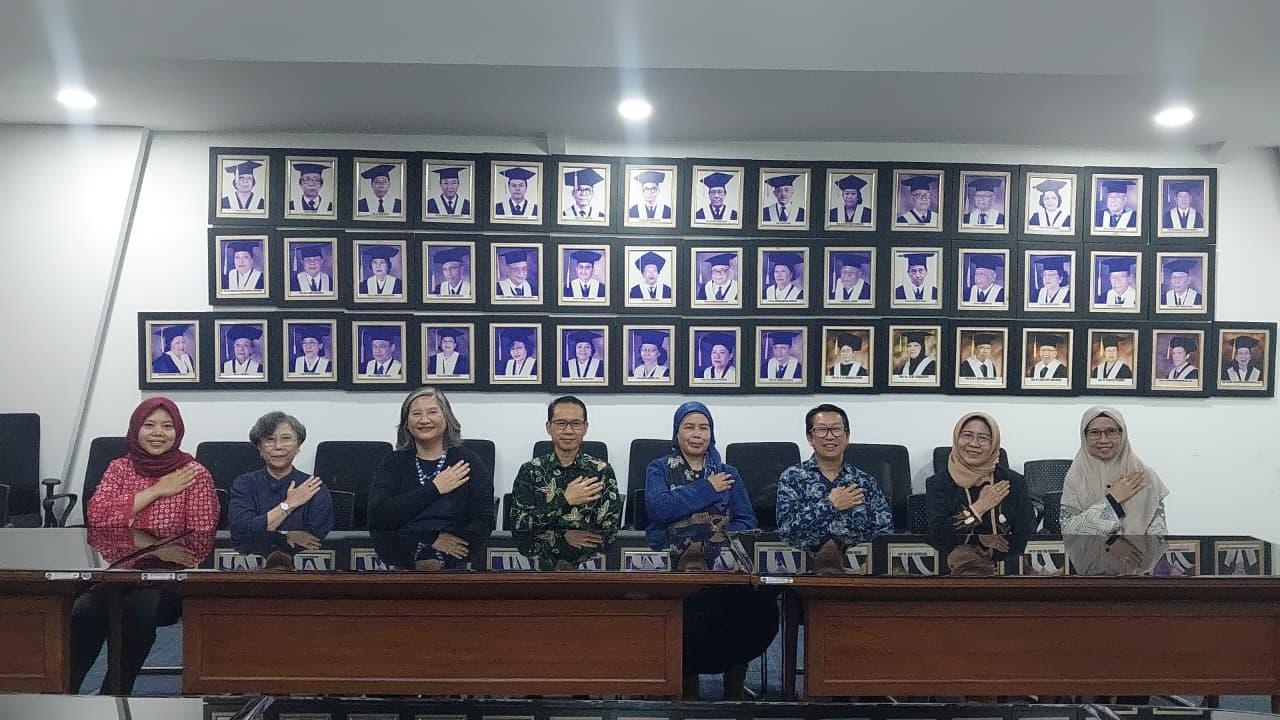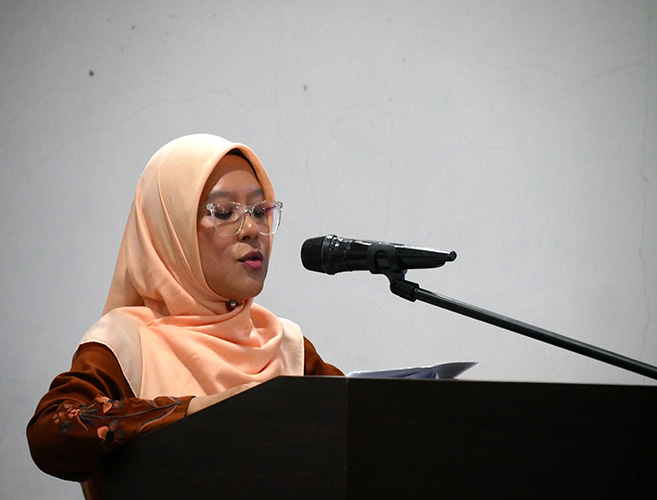Since 2007, the Faculty of Humanities, Universitas Indonesia (FIB UI) and the Indonesian Deaf Welfare Movement (Gerkatin) have been working together to improve the welfare of the Indonesian deaf community, particularly through higher education. The reality shows that the number of deaf people in higher education is still low, so FIB UI strives to encourage expanded access for the deaf community to pursue higher education through sign language education and research, particularly Indonesian Sign Language (Bisindo). One of the highlights was in 2013 when the FIB UI Sign Language Laboratory (LRBI FIB UI) was established, which since then has been conducting various activities to introduce and provide Bisindo proficiency to students and the wider community in order to expand communication and information access for the deaf community with the hearing community.
This was also highlighted in the Focus Group Discussion (FGD) on education for the deaf community between FIB UI and the leadership of the Coordinating Ministry for Human Empowerment and Culture (Kemenko PMK) on Wednesday, October 1, 2025, at FIB UI. Present at the FGD were representatives from Kemenko PMK, including the Deputy Assistant for Elderly Welfare and Persons with Disabilities, Ricky Radius Siregar; Senior Policy Analyst, Zuraini; Junior Expert Planner, A. Budi Santoso; First Expert Planner, Arief Rachman H.; and Partnership Analyst, Irliene Febriana. Meanwhile, from FIB UI, the attendees included the Vice Dean for Academic, Research, and Student Affairs, Dr. Untung Yuwono, S.S.; Head of LRBI FIB UI, Silva Tenrisara Pertiwi Isma, M.Hum., M.A., who is also a sign language expert; Head of the Linguistics Postgraduate Program, Dr. Triaswarin Sutanarihesti, M.Hum.; Linguistics Lecturer at FIB UI, M. Umar Muslim, Ph.D.; several sign language interpreters; and native sign language speakers who are also members of LRBI FIB UI.
In the FGD, Ricky Radius Siregar said that currently the government, through the relevant ministries, is trying to speed up education for people with disabilities, including deaf people. That’s why we need academic research that shows how people with disabilities are doing in school, from elementary school to college. In the context of education for the deaf community, one of the factors that supports the success of students in school is the language used, namely sign language. In fact, there are two modes used by the deaf community in Indonesia, namely Indonesian Sign Language (Bisindo) and Indonesian Sign System (SIBI).
Responding to the presentation by the Assistant Deputy for Elderly Welfare and Persons with Disabilities of the Coordinating Ministry for Human Development and Culture, Untung Yuwono explained the background of the collaboration between FIB UI and Gerkatin, which is to expand Bisindo skills not only to deaf people but also to hearing people through lectures and courses offered to both UI students and the wider community. The aim is to enhance mutual understanding between hearing and deaf communities through active communication between them using Bisindo, the most widely used sign language, and to improve access to scientific information for the deaf community through active communication with the hearing community.It is hoped that ultimately, the potential and interest of the Deaf community to pursue higher education will increase.
Silva Tenrisara Pertiwi Isma said that every year since 2007, Indonesian Sign Language classes have been attended by no less than 200 students, not to mention through courses and training. Interaction between the deaf community and the hearing community has increased, and the deaf community’s interest in pursuing studies has grown. This has been achieved thanks to cooperation between various parties, including cooperation with international partners such as the Nippon Foundation, which until 2023 has provided grants for the development of sign language for LRBI, which is used to produce various learning media, particularly printed dictionaries and visual dictionaries.
Umar Muslim believes that schools are still teaching SIBI to deaf students. He agrees with the Coordinating Ministry for Human Development and Culture that a comprehensive study is needed on the use of language, whether SIBI, which has been taught in schools, is effective and supports the performance of deaf students in attending classes at school so that they are ultimately able to continue their studies, even to higher education. In reality, SIBI is a sign language system, so it takes relatively long for students to master it. This characteristic differs from Bisindo, which is both a natural language and the native language of the deaf community, making it easier for deaf speakers to communicate.
What was stated by FIB UI regarding the characteristics of Bisindo as the native language of the Deaf community was confirmed by Bisindo speakers in this FGD. Adhi Kusumo Bharoto, Phieter Angdika, and Iwan Satryawan. The effectiveness of Bisindo can be seen in the increasing number of Deaf friends who are able to pursue higher education armed with their mastery of Bisindo. As a result of the FGD, based on the input obtained, FIB UI and the Coordinating Ministry for Human Development and Culture agreed to continue the efforts made by FIB UI together with the Deaf community to collaborate, particularly in conducting studies related to the effectiveness of sign language use in Indonesia to support Education for All as mandated in Sustainable Development Goal (SDG) 4.




